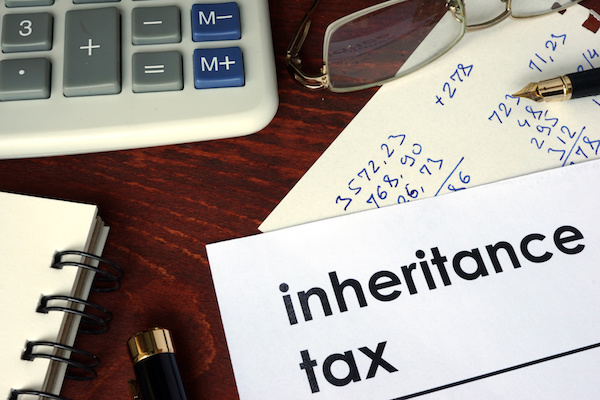The federal estate tax is a tax that is levied on property that is transferred from one person to an heir following their death. This property can include cash, real estate, stock, and other assets. However, the tax is only levied on the wealthiest of estates because the only part of an estate that is taxed is the portion of the value that exceeds the exemption level. In 2016, that exemption level was $5.45 million per person. Here are five facts about the federal estate tax that you may not know.
Only 0.2% of Estates Pay the Federal Estate Tax
According to the Joint Committee on Taxation, 99.8 percent of all American estates pay no estate tax. This means that only 0.2 percent of all Americans are required to pay these taxes. The reason for this is due to the exemption amount of the tax. In 2001, the federal estate tax’s exemption amount was $650,000 requiring more Americans to pay it but that number has steadily risen, reaching $5.45 million in 2016. The result of this increase means that only two in every 1,000 American estates will be required to pay these taxes.
Estates Usually Pay Less Than One-Sixth of Their Value in Federal Estate Taxes
The Urban-Brookings Tax Policy Center (TPC) has reported that in 2013, estates that were required to pay the federal estate tax only paid 16.6 percent of their estate’s value on average. The reason for this is that the taxes are only levied on the portion of the estate that exceeds the exemption level. This means that an estate that is worth $5.5 million would only have to pay $50,000 in estate taxes as that’s the amount that is remaining that exceeds the exemption level. Also contributing in this low percentage is that many estates are able to protect their portions of their estate from being taxed through deductions enacted by policymakers.
Avoiding Federal Estate Tax Through Loopholes
When an estate reaches that exemption level of $5.45 million, owners of the estate will look for ways to lessen the burden of the federal estate tax. There are multiple loopholes that can allow these estates to avoid paying the entirety of the tax. One of the more significant loopholes is through grantor retained annuity trusts (GRATs). Through this trust, the owner of the estate will put money into a trust that has been designed to repay the estate’s initial amount in addition to an interest rate that has been decided on by the Treasury. This is typically done over a period of two years. If the value of the investment rises more than the rate set by the Treasury, the amount gained will automatically go to the heir of the estate tax free. If there is no rise in value of the investment, the entirety of the amount still returns to the estate. The estate lawyer that found this loophole has estimated that it was saved wealthy estates as much as $100 billion in estate taxes since 2000.
Small Farms and Small Businesses Paying Estate Tax
Very few small farms and small businesses actually pay estate taxes. In fact, according to TPC, only about 20 of these estates in the United States have to pay any estate tax as of 2013. Those 20 businesses and farms owed only 4.9 percent of the value of their estate in federal estate tax on average. A study in 2005 by the Congressional Budget Office (CBO) found that the overwhelming amount of small farms and small businesses that owed these taxes have sufficient liquid assets that the farm or business would be left alone.
Federal Estate Tax Provides Significant Revenue Source
While very few estates have to pay the federal estate tax, the amount of revenue that the tax brings in for the federal government is quite significant. The Congressional Budget Office estimates that the tax will generate about $275 billion between 2017 and 2026. While that is less than one percent of the federal revenue gained during that period, it is more than the federal government will spend on the Food and Drug Administration (FDA), the Centers for Disease Control and Prevention (CDC), and the Environmental Protection Agency (EPA) combined.
Very few estates have to pay the federal estate tax with only 0.2 percent of estates in the United States being required to. Despite the number of estates that are required to pay the tax, it provides a significant revenue source for the federal government. If you need more information on your taxes, come see the experts at France Law Firm.






















